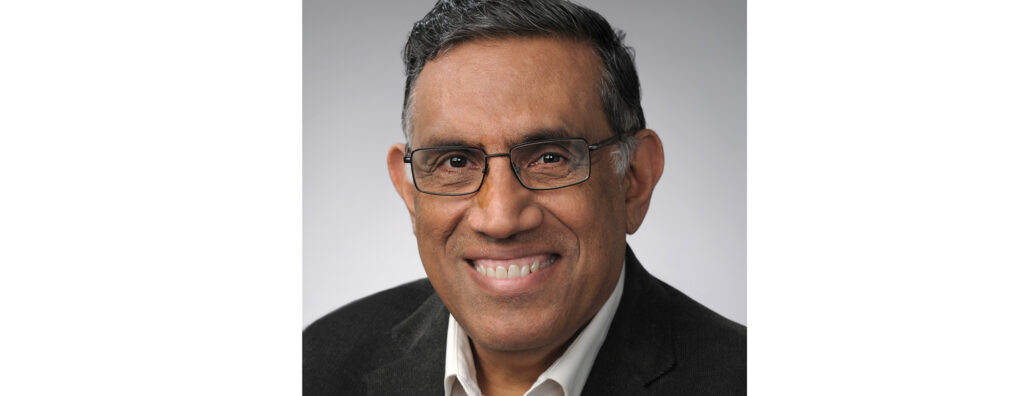
Emma Liptrap’s passion for environmental engineering began in a parking lot.
In her junior year of high school, she set up a shadowing experience with a local engineering firm in her hometown of Salem, New Hampshire. Engineers brought her to a parking lot they were redesigning to mitigate stormwater runoff. They explained how water from large storms can become polluted from deposits on the ground and then flow directly into the nearby river.
“I had never thought much about parking lots or impervious surfaces before my shadowing experience, but after learning about their relationship to pollution and flooding I became fascinated—and committed—to learning more about stormwater management,” Liptrap says
Liptrap, a sophomore civil engineering major in the College of Engineering and Computer Science (ECS) and member of the Renée Crown University Honors Program, is a recipient of a 2022 National Oceanic and Atmospheric Administration (NOAA) Ernest F. Hollings Undergraduate Scholarship, which will help support her studies.
Named for Sen. Ernest “Fritz” Hollings of South Carolina, the prestigious award provides tuition support ($9,500 per year) and paid summer internships with NOAA to recipients. The award is designed to support students working in areas related to NOAA’s programs and mission. Students apply as sophomores, do an internship in their junior year, and receive support and mentorship throughout their undergraduate career.
In high school, Liptrap began her environmental and stormwater work by creating a sustainability club. In the first year, she gave presentations about water conservation to elementary school students, organized trash pickups at local parks, distributed water barrels to town residents and led a project planting a garden at a local park to promote wildlife.
She also worked as an intern with an architect who prioritized reusing materials and building for the future. “I loved learning about LEED certification and analyzing how we could make each build more sustainable,” she says. In her senior year, she won the New Hampshire Department of Education’s Work-Based Learning Award for her work in the internship.
Liptrap enrolled at Syracuse because of the University’s civil and environmental engineering program, SOURCE undergraduate research funding program and research focus on the smart management of water systems. “I had also read about how Onondaga Lake used to be one of the most polluted lakes in the country, and the opportunity to learn more about how it is being restored excited me,” she says.
Her coursework involves technical engineering classes along with classes in social sciences to broaden her understanding of climate change. “Through my classes, it has been made clear to me that the work I will do in the future will require cooperation with many stakeholders, including scientists, policymakers and the public. I understand how crucial effective communication will be throughout my career and am developing those skills by learning how to give presentations and engaging in team projects,” she says.
Liptrap is working in the research lab of Cliff Davidson, Thomas and Colleen Wilmot Professor of Engineering in ECS. She is engaged in research using HYDRUS, a computer program that models the movement of water at different levels of saturation. The research is done on the 60,000-square-foot green roof of the Onondaga County Convention Center (ONCenter) in Syracuse, studying its capacity to prevent stormwater from overflowing Syracuse’s combined sewer system.
“Having a reliable program like HYDRUS to model stormwater runoff will help engineers designing green roofs in the future so that they can be built to fit an area’s specific needs,” Liptrap says.
Liptrap also joined the University’s Water Chemistry lab last summer, focusing on determining the rate at which pollutants in the air settle on surfaces in Syracuse. “This project will help provide a blueprint for how to measure dry deposition in urban environments so that these pollutants can be better studied in cities,” she says.
She currently serves as outreach chair for the University’s student chapter of the American Society of Civil Engineers. She is also a member of Engineering Ambassadors, a club that facilitates engineering projects for middle school students to introduce them to key engineering concepts.
In the future, Liptrap wants to design and implement green infrastructure in cities as a civil engineer with a private consulting firm. “Many cities across the United States have plans to become more sustainable, and water management through green infrastructure will be crucial to this work,” she says. “The Hollings Scholarship’s mentorship and internship opportunities will be invaluable in helping me better understand the state of the field and explore career paths.”
Liptrap worked with the Center for Fellowship and Scholarship Advising (CFSA) to apply for the NOAA scholarship. CFSA offers candidates advising and assistance with applications and interview preparation for nationally competitive scholarships. “Emma’s sustained focus on environmental issues, and her specific interest in managing stormwater runoff, made her a terrific candidate for the NOAA-Hollings Scholarship. Her interests and goals are clearly aligned with NOAA’s mission,” says Jolynn Parker, director of CFSA. “We’re thrilled she’s won this award and will benefit from mentorship and internship opportunities through NOAA.”
The 2023 NOAA-Hollings Scholarship application will open in September Interested students should contact CFSA for more information: 315.443.2759 or cfsa@syr.edu.

